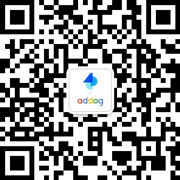
本案例默认翻译为中文,点击可切换回原语言
已切换成原语言,点击可翻译成中文
变化有味道
案例简介:概要 沙特阿拉伯是一个罕见的市场,妇女直到今天才能开车。它也是可口可乐遥遥领先的市场之一,百事可乐拥有80% 的市场份额。可口可乐需要更接近沙特。2017年9月,随着沙特统治者通过一项法律,允许妇女开车开始2018年6月,该国见证了里程碑式的变化。虽然世界祝贺沙特阿拉伯,但沙特阿拉伯的一半 (主要由保守派组成) 绝对反对这一变化,批评和告诫这一决定。“禁止女性驾驶必须继续,因为她们 '缺乏男性的智力',” (一名牧师) “预计会有更多的事故发生。” (推特用户) “你可以取消禁令,但是你不能强迫我们让我们的女人开车。” (一家私人汽车公司的老板) “我向上帝发誓,我会烧掉他们和他们的汽车。” (YouTube用户) 战略 由于来自半个国家的强烈反对,该国的大多数品牌都没有庆祝这一具有里程碑意义的变化,也没有通过任何形式的大众媒体或公共活动来表示支持,只有少数品牌 (福特,大众,捷豹和宜家) 共享简单的社交帖子。百事可乐是沙特阿拉伯软饮料类别的市场领导者,拥有80% 的市场份额,也选择保持沉默和安全。由于百事可乐在女性驾驶的话题上保持沉默,挑战者品牌可口可乐多年来一直支持64个国家的女性赋权,尽管只拥有20% 的市场,但它有机会通过不像其他品牌 (包括百事可乐) 那样回避沙特阿拉伯。该活动需要触及品牌围绕多样性和包容性的价值观,并与可口可乐致力于增强女性权能的承诺保持一致。 相关性 早些时候,没有人会想到沙特阿拉伯有一个品牌展示一名女性开车。过去,当妇女叛乱和开车时,她们被判入狱或不得不逃离该国。随着9月-2017年的法律变更,允许女性从6月-2018年开始开车,可口可乐成为百事可乐背后的挑战者品牌,拥有80% 的市场份额,需要更接近沙特阿拉伯。在对法律变更的强烈反对中,可口可乐在正确的地点,在正确的时间,在正确的想法的推动下,采取立场支持女性驾驶,是最终的对话驱动力。 结果 针对沙特阿拉伯,该内容在90个国家/地区进行了共享和讨论。我们获得了8.9亿的社交媒体印象和1.5亿的总覆盖范围。这些内容引发了2890篇帖子和文章,横跨新闻周刊 (“沙特阿拉伯的新一面” 、今日美国 (“一件大事”) 、巴黎人 (“一种强烈的象征”) 、i24 (“改变有品味”) 、福克斯新闻、Mashable、《赫芬顿邮报》、《广告周刊》、《GQ》、《Popsugar》、《利雅得连线》、《金融快报》、《阿拉伯商业》、《海湾内幕》、《阿联酋女性》、《Chouf Chouf》等。它创造了390万美元的媒体价值。18% 来自沙特阿拉伯和国外的负面反馈和情绪,给了可口可乐以及那些喜欢这些内容的人,18% 了更多的机会来围绕沙特阿拉伯的女性驾车话题进行对话。最终,这导致可口可乐在沙特阿拉伯的品牌爱增加了22%,其中大部分归因于女性观众。 执行 这部电影显示,一位父亲把他年轻的蒙着面纱的女儿递给他的车钥匙,然后坐在乘客座位上。由于缺乏经验和焦虑,女儿多次尝试开车,开车和停车。在开车时,她父亲用可口可乐 (coca-cola) 稍微轻推一下,经过几次加速失败和瓶子从仪表板上掉下来时的灵巧保存后,她变得更加自信,直到加速并开车离开。该电影已发布在可口可乐YouTube和Facebook平台上。在没有付费媒体支持的情况下,这部电影在沙特阿拉伯、中东和世界各地、WhatsApp聊天、Facebook时间轴、YouTube上转发、Twitter上转发、影响者个人资料上分享了它自己的生命。 运动描述 可口可乐推出了一部庆祝女性驾驶的在线电影,从而产生了影响。它展示了沙特阿拉伯一个前所未有的、令人心碎的场景: 一位父亲教他年幼的女儿如何开车。父亲教女儿开车,这是沙特阿拉伯的女儿一直渴望的事情,因为他们看到父亲教他们的兄弟和男性亲戚。但这是他们从未经历过的-直到法律变更发生。2017年11月,这是法律变更后1个月发布的,这是该品牌关于沙特阿拉伯女性驾车的第一个大众信息。
变化有味道
案例简介:Synopsis Saudi Arabia is the one rare market, where women cannot drive until this day. It is also one of the rare markets where Coca-Cola has been a distant number 2, with Pepsi owning 80% of the market share. Coca-Cola needed to get closer to Saudis. In end-September 2017, with Saudi’s Ruler passing a law that allowed women to drive starting June 2018, the country witnessed a landmark change. While the world congratulated Saudi Arabia, half of Saudi Arabia (primarily constituted of conservatives), has been absolutely against this change, criticising and admonishing the decision. “The ban on women driving must remain because they ‘lack the intellect’ of men,” (A cleric) "Expect more accidents.” (Twitter user) “You can remove the ban, but you cannot force us to let our women drive.” (A private car company owner) "I swear to God, I will burn them and their cars.” (YouTube user) Strategy Because of the backlash from half the country, most brands in the country didn’t celebrate this landmark change nor show their support for it with any form of mass media or public campaign, with only a few brands (Ford, Volkswagen, Jaguar and IKEA) sharing simple social posts. Pepsi, the market leader in Saudi Arabia in the soft drinks category, with 80% of the market share, chose to remain silent and safe too. With Pepsi remaining silent on the topic of women driving, Coca-Cola, the challenger brand, that has supported women empowerment in 64 countries over the years, had the chance to get closer to Saudis by not shying away like the rest of the brands (including Pepsi), despite owning only 20% of the market. The campaign needed to touch upon the brand’s values surrounding diversity and inclusion and aligns with Coca-Cola’s commitment to enable the empowerment of women. Relevancy Earlier, no one would've imagined a brand in Saudi Arabia showing a woman driving. When women have rebelled and driven in the past, they've been jailed or have had to flee from the country. With the law-change in September-2017 that allows women to drive starting June-2018, Coca-Cola being a challenger brand behind Pepsi that owns 80% of the market share, needed to get closer to Saudis. Amidst a backlash to the law-change, Coca-Cola’s message, in the right place, at the right time, driven by the right idea, taking a stand in support of women driving, was the ultimate conversation driver. Outcome Aimed at Saudi Arabia, the content was shared and discussed in 90 countries. We earned 890 million social media impressions and a total reach of 150 million. The content triggered 2890 posts and articles, across sites like Newsweek (“A New Side of Saudi Arabia”, USA Today (“A big deal”), La Parisienne (“A strong symbol”), i24 (“Change has a taste”), Fox News, Mashable, The Huffington Post, Adweek, GQ, Popsugar, Riyadh Connect, The Financial Express, Arabian Business, Gulf Insider, Emirates Woman, Chouf Chouf among others. It generated $3.9 million earned media value. 18% negative feedback and sentiments from Saudi Arabia and abroad, gave Coca-Cola as well as those who loved the content, 18% more opportunities to engage in a conversation around the topic of women driving in Saudi Arabia. And ultimately, this led to an increase of +22% in Coca-Cola’s brand love in Saudi Arabia, a majority being attributed to women audiences. Execution The film shows a dad handing his young veiled daughter the keys to his car, and then sitting in the passenger seat. The daughter makes several attempts to drive, starting and stopping due to inexperience and anxiety. With a little nudge from her dad using a Coca-Cola to gauge balance while driving, after a few more failed accelerations and deft saves of the bottle as it falls off the dashboard, she gets more confidence until revving up and driving off. The film was posted on Coca-Cola YouTube and Facebook platforms. And WITHOUT paid media support, the film took on a life of its own as it was shared in Saudi Arabia, in the Middle East and around the world, on WhatsApp chats, on Facebook timelines, through reposts on YouTube, on Twitter feeds, on Influencer profiles – ORGANICALLY. CampaignDescription Coca-Cola struck an impact by launching an online film that celebrated women driving. It consisted showing a path-breaking, never-seen-before, yet a very heart-warming scene in Saudi Arabia: A dad teaching his young daughter how to drive. A father teaching a daughter how to drive, is something daughters in Saudi Arabia have always aspired for, having seen their brothers and male relatives being taught by dads; but it's something they have never been able to experience - until the law change transpired. Launched 1 month after the law change, in November 2017, this was the FIRST mass message from a brand about women driving in Saudi Arabia.
Change has a Taste
案例简介:概要 沙特阿拉伯是一个罕见的市场,妇女直到今天才能开车。它也是可口可乐遥遥领先的市场之一,百事可乐拥有80% 的市场份额。可口可乐需要更接近沙特。2017年9月,随着沙特统治者通过一项法律,允许妇女开车开始2018年6月,该国见证了里程碑式的变化。虽然世界祝贺沙特阿拉伯,但沙特阿拉伯的一半 (主要由保守派组成) 绝对反对这一变化,批评和告诫这一决定。“禁止女性驾驶必须继续,因为她们 '缺乏男性的智力',” (一名牧师) “预计会有更多的事故发生。” (推特用户) “你可以取消禁令,但是你不能强迫我们让我们的女人开车。” (一家私人汽车公司的老板) “我向上帝发誓,我会烧掉他们和他们的汽车。” (YouTube用户) 战略 由于来自半个国家的强烈反对,该国的大多数品牌都没有庆祝这一具有里程碑意义的变化,也没有通过任何形式的大众媒体或公共活动来表示支持,只有少数品牌 (福特,大众,捷豹和宜家) 共享简单的社交帖子。百事可乐是沙特阿拉伯软饮料类别的市场领导者,拥有80% 的市场份额,也选择保持沉默和安全。由于百事可乐在女性驾驶的话题上保持沉默,挑战者品牌可口可乐多年来一直支持64个国家的女性赋权,尽管只拥有20% 的市场,但它有机会通过不像其他品牌 (包括百事可乐) 那样回避沙特阿拉伯。该活动需要触及品牌围绕多样性和包容性的价值观,并与可口可乐致力于增强女性权能的承诺保持一致。 相关性 早些时候,没有人会想到沙特阿拉伯有一个品牌展示一名女性开车。过去,当妇女叛乱和开车时,她们被判入狱或不得不逃离该国。随着9月-2017年的法律变更,允许女性从6月-2018年开始开车,可口可乐成为百事可乐背后的挑战者品牌,拥有80% 的市场份额,需要更接近沙特阿拉伯。在对法律变更的强烈反对中,可口可乐在正确的地点,在正确的时间,在正确的想法的推动下,采取立场支持女性驾驶,是最终的对话驱动力。 结果 针对沙特阿拉伯,该内容在90个国家/地区进行了共享和讨论。我们获得了8.9亿的社交媒体印象和1.5亿的总覆盖范围。这些内容引发了2890篇帖子和文章,横跨新闻周刊 (“沙特阿拉伯的新一面” 、今日美国 (“一件大事”) 、巴黎人 (“一种强烈的象征”) 、i24 (“改变有品味”) 、福克斯新闻、Mashable、《赫芬顿邮报》、《广告周刊》、《GQ》、《Popsugar》、《利雅得连线》、《金融快报》、《阿拉伯商业》、《海湾内幕》、《阿联酋女性》、《Chouf Chouf》等。它创造了390万美元的媒体价值。18% 来自沙特阿拉伯和国外的负面反馈和情绪,给了可口可乐以及那些喜欢这些内容的人,18% 了更多的机会来围绕沙特阿拉伯的女性驾车话题进行对话。最终,这导致可口可乐在沙特阿拉伯的品牌爱增加了22%,其中大部分归因于女性观众。 执行 这部电影显示,一位父亲把他年轻的蒙着面纱的女儿递给他的车钥匙,然后坐在乘客座位上。由于缺乏经验和焦虑,女儿多次尝试开车,开车和停车。在开车时,她父亲用可口可乐 (coca-cola) 稍微轻推一下,经过几次加速失败和瓶子从仪表板上掉下来时的灵巧保存后,她变得更加自信,直到加速并开车离开。该电影已发布在可口可乐YouTube和Facebook平台上。在没有付费媒体支持的情况下,这部电影在沙特阿拉伯、中东和世界各地、WhatsApp聊天、Facebook时间轴、YouTube上转发、Twitter上转发、影响者个人资料上分享了它自己的生命。 运动描述 可口可乐推出了一部庆祝女性驾驶的在线电影,从而产生了影响。它展示了沙特阿拉伯一个前所未有的、令人心碎的场景: 一位父亲教他年幼的女儿如何开车。父亲教女儿开车,这是沙特阿拉伯的女儿一直渴望的事情,因为他们看到父亲教他们的兄弟和男性亲戚。但这是他们从未经历过的-直到法律变更发生。2017年11月,这是法律变更后1个月发布的,这是该品牌关于沙特阿拉伯女性驾车的第一个大众信息。
Change has a Taste
案例简介:Synopsis Saudi Arabia is the one rare market, where women cannot drive until this day. It is also one of the rare markets where Coca-Cola has been a distant number 2, with Pepsi owning 80% of the market share. Coca-Cola needed to get closer to Saudis. In end-September 2017, with Saudi’s Ruler passing a law that allowed women to drive starting June 2018, the country witnessed a landmark change. While the world congratulated Saudi Arabia, half of Saudi Arabia (primarily constituted of conservatives), has been absolutely against this change, criticising and admonishing the decision. “The ban on women driving must remain because they ‘lack the intellect’ of men,” (A cleric) "Expect more accidents.” (Twitter user) “You can remove the ban, but you cannot force us to let our women drive.” (A private car company owner) "I swear to God, I will burn them and their cars.” (YouTube user) Strategy Because of the backlash from half the country, most brands in the country didn’t celebrate this landmark change nor show their support for it with any form of mass media or public campaign, with only a few brands (Ford, Volkswagen, Jaguar and IKEA) sharing simple social posts. Pepsi, the market leader in Saudi Arabia in the soft drinks category, with 80% of the market share, chose to remain silent and safe too. With Pepsi remaining silent on the topic of women driving, Coca-Cola, the challenger brand, that has supported women empowerment in 64 countries over the years, had the chance to get closer to Saudis by not shying away like the rest of the brands (including Pepsi), despite owning only 20% of the market. The campaign needed to touch upon the brand’s values surrounding diversity and inclusion and aligns with Coca-Cola’s commitment to enable the empowerment of women. Relevancy Earlier, no one would've imagined a brand in Saudi Arabia showing a woman driving. When women have rebelled and driven in the past, they've been jailed or have had to flee from the country. With the law-change in September-2017 that allows women to drive starting June-2018, Coca-Cola being a challenger brand behind Pepsi that owns 80% of the market share, needed to get closer to Saudis. Amidst a backlash to the law-change, Coca-Cola’s message, in the right place, at the right time, driven by the right idea, taking a stand in support of women driving, was the ultimate conversation driver. Outcome Aimed at Saudi Arabia, the content was shared and discussed in 90 countries. We earned 890 million social media impressions and a total reach of 150 million. The content triggered 2890 posts and articles, across sites like Newsweek (“A New Side of Saudi Arabia”, USA Today (“A big deal”), La Parisienne (“A strong symbol”), i24 (“Change has a taste”), Fox News, Mashable, The Huffington Post, Adweek, GQ, Popsugar, Riyadh Connect, The Financial Express, Arabian Business, Gulf Insider, Emirates Woman, Chouf Chouf among others. It generated $3.9 million earned media value. 18% negative feedback and sentiments from Saudi Arabia and abroad, gave Coca-Cola as well as those who loved the content, 18% more opportunities to engage in a conversation around the topic of women driving in Saudi Arabia. And ultimately, this led to an increase of +22% in Coca-Cola’s brand love in Saudi Arabia, a majority being attributed to women audiences. Execution The film shows a dad handing his young veiled daughter the keys to his car, and then sitting in the passenger seat. The daughter makes several attempts to drive, starting and stopping due to inexperience and anxiety. With a little nudge from her dad using a Coca-Cola to gauge balance while driving, after a few more failed accelerations and deft saves of the bottle as it falls off the dashboard, she gets more confidence until revving up and driving off. The film was posted on Coca-Cola YouTube and Facebook platforms. And WITHOUT paid media support, the film took on a life of its own as it was shared in Saudi Arabia, in the Middle East and around the world, on WhatsApp chats, on Facebook timelines, through reposts on YouTube, on Twitter feeds, on Influencer profiles – ORGANICALLY. CampaignDescription Coca-Cola struck an impact by launching an online film that celebrated women driving. It consisted showing a path-breaking, never-seen-before, yet a very heart-warming scene in Saudi Arabia: A dad teaching his young daughter how to drive. A father teaching a daughter how to drive, is something daughters in Saudi Arabia have always aspired for, having seen their brothers and male relatives being taught by dads; but it's something they have never been able to experience - until the law change transpired. Launched 1 month after the law change, in November 2017, this was the FIRST mass message from a brand about women driving in Saudi Arabia.
变化有味道
暂无简介
Change has a Taste
暂无简介
基本信息
- 广告战役: #可口可乐-网络-0d53#
- 广告品牌: 可口可乐
- 发布日期: 2000
- 行业领域: 饮品/饮料/冲饮 , 饮食/特产
- 媒体类别: 海报/平面
- 广告语言: 英语
- 媒介平台: 网络
- 获得奖项:
暂无评分
已有{{caseInfo.tatolPeople}}人评分
创作者
案例详情
涵盖全球100万精选案例,涉及2800个行业,包含63000个品牌
热门节日97个,23个维度智能搜索
-

项目比稿
品类案例按时间展现,借鉴同品牌策略,比稿提案轻松中标
-

创意策划
任意搜索品牌关键词,脑洞创意策划1秒呈现
-

竞品调研
一键搜索竞品往年广告,一眼掌握对手市场定位
-

行业研究
热词查看洞悉爆点,抢占行业趋势红利
登录后查看全部案例信息
如果您是本案的创作者或参与者 可对信息进行完善







